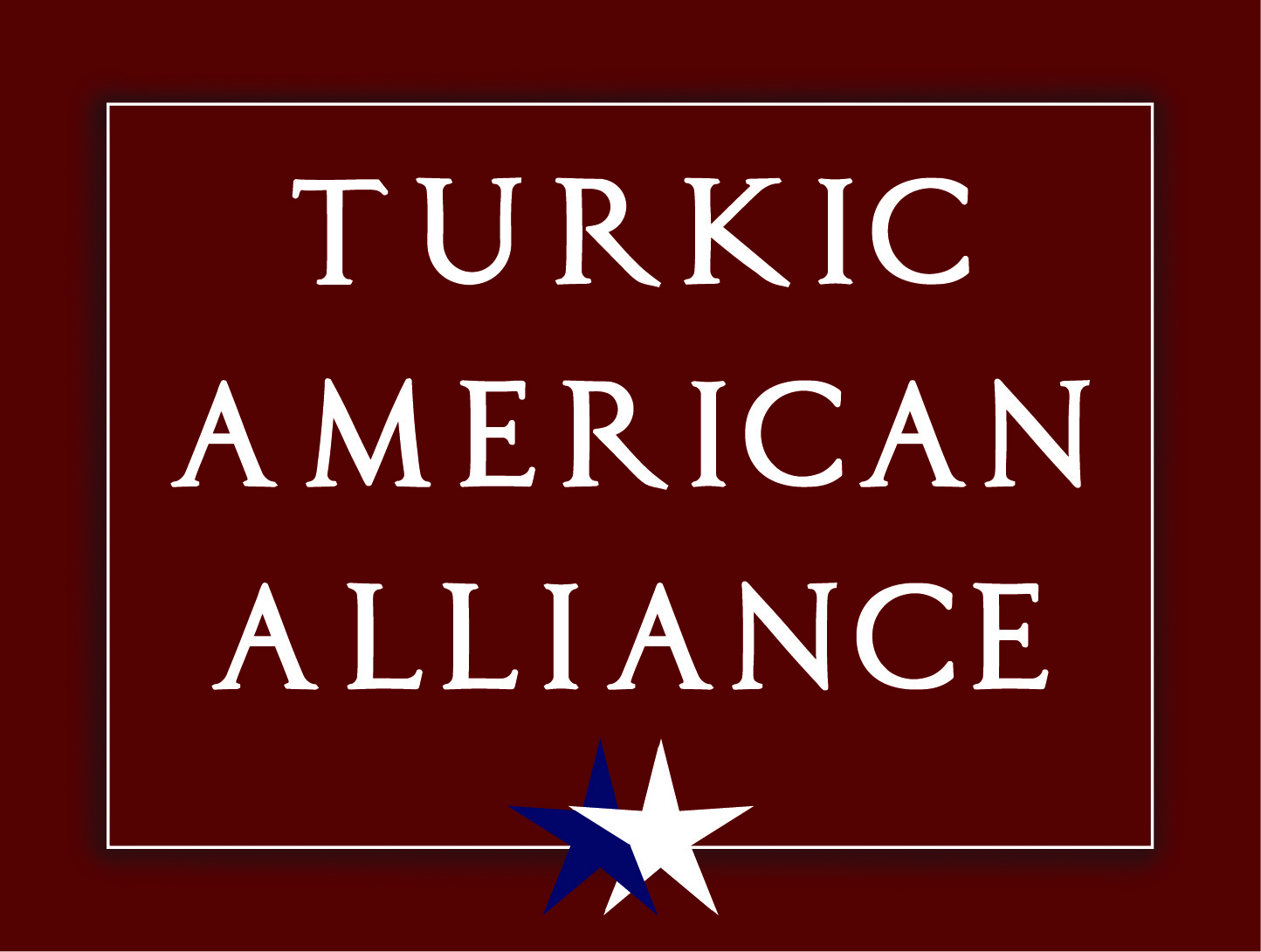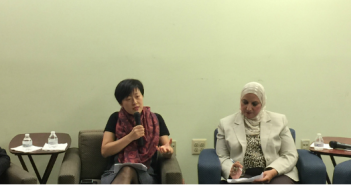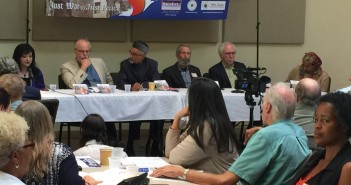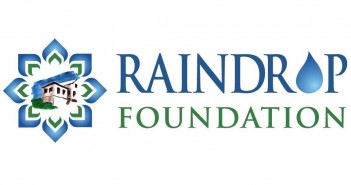Congressional Breakfast
On Wednesday, April 30th, 2014, the 3rd annual U.S.-Azerbaijan Convention resumed at the Willard InterContinental Hotel in Washington, D.C., from 7:30am to 9:00am in the Ballroom. Throughout the convention’s exciting events, U.S. Members of Congress, delegations from Central Asia, law and policy makers, academics and religious leaders came together to share their views on U.S.-Azerbaijan relations. The convention is organized by the Assembly of the Friends of Azerbaijan (AFAZ).
Opening remarks were delivered by His Excellency Elin Suleymanov, Ambassador of the Republic of Azerbaijan to the United States. Ambassador Suleymanov opened his remarks by discussing the U.S.-Azerbaijan strategic partnership and cooperation in the Caspian Basin, stating that U.S.-Azerbaijan relations are critical to both regions. Following the Ambassador, an introductory movie was played, titled “Azerbaijan–Land of the Future,” which showcased the country’s recent development plans for creating a prosperous future.
Distinguished guests included Congressman Robert Aderholt (AL), Congressman Bill Shuster (PA), Congressman Mike Turner (OH), Congressman Jim Moran (VA), Congressman Mike Doyle (PA), Congressman Pete Olson (TX), Congressman Steve Chabot (OH), Congresswoman Michelle Grisham (NM), Congressman Hakeem Jeffries (NY), Congresswoman Grace Meng (NY), Congressman Donald Payne, Jr. (NJ) and Congressman Pete Gallego (TX).
Following the Congressional Breakfast was Forum Session 1, entitled “Azerbaijan: Trusted Friend at the Critical Global Crossroads.”
Forum Session 1: Azerbaijan: Trusted Friend at the Critical Global Crossroads
The first session was moderated by George Friedman, Chairman and Founder of Stratfor.
Dr. Richard Weitz, Director & Senior Fellow at the Hudson Institute, highlighted the importance of Azerbaijan for the U.S., considering its geographical proximity to Russia and Iran. According to Dr. Weitz, the country’s military dimensions continue to expand. For instance, the U.S.-Azerbaijan Caspian Guard Initiative is designed to coordinate activities in Azerbaijan and Kazakhstan with those of U.S. Central Command and other U.S. government agencies in order to enhance security across the Caspian Sea.
The Honorable Samad Seyidov, Deputy of the National Assembly of Azerbaijan, briefed the participants on the Armenian occupation, which remains unresolved. Deputy Seyidov also believes that Azerbaijan, which borders Iran and Russia, is at a crossroads in its position in Central Asia and the Silk Road. Deputy Seyidov, who also considers the U.S. a “reliable, supportive and trusted friend,” showed his support for U.S. foreign policy and its sanctions on Russia and also expressed his concern on the trade sanctions imposed on Iran, which has affected Azerbaijan. In light of the ongoing Ukraine conflict, which has captured the attention of the international community, Deputy Seyidov believes that Ukraine’s territorial integrity is very important to Azerbaijan.
H.E. Richard Morningstar, United States Ambassador to Azerbaijan, discussed the Nagorno-Karabakh issue, the role of democracy and human rights, and the importance of maintaining good relations with other nations. Ambassador Morningstar referred to the demonstrations in Ukraine as a “game changer” in the international community, and that both the U.S. and Azerbaijan have to work hard to strengthen and protect their relationship. In addition, Ambassador Morningstar stressed the importance of resolving the Nagorno-Karabakh conflict, which continues to create instability in the region, and urged the respective Presidents of Armenia and Azerbaijan to resolve the ongoing conflict. The Ambassador also commended Azerbaijan for continuing to pursue a “courageous and independent course” despite the numerous challenges it faces in the region.
Dr. Evelyn Farkas, Deputy Assistant Secretary of Defense for Russia/Ukraine/Eurasia, discussed peacekeeping efforts and maritime and territorial security within Central Asia as well as globally. Dr. Farkas also briefed the participants on energy security projects and efforts, development of professional military exchange, cultural exchange and other initiatives that are essential to keeping relations strong in the region.
Dr. Ariel Cohen, Senior Research Fellow at the Heritage Foundation, discussed Ukraine-Russia relations and Russia’s foreign policy towards Azerbaijan. Dr. Cohen believes that Russia is proving to become a major geopolitical “asset” for the U.S., although it has not previously been a former ally. Dr. Cohen also discussed the treatment of women in Central Asia, Turkmenistan’s relationship with the Caspian region, and the way forward in developing good relations with its neighbors. Dr. Cohen concluded by emphasizing the need to find solutions to resolve the Armenia-Azerbaijan conflict once and for all.
U.S. Representative Charlie Dent (PA), who was the session’s keynote speaker, emphasized how “delicate” the Azerbaijan border is, dues to its proximity between Iran and Russia. According to Congressman Dent, Pennsylvania is the 2nd most influential state in the distribution of liquified natural gas (LNG), suggesting that the U.S. should focus on developing this venture further.
Gen. Duncan J. McNabb, former commander of the United States Transportation Command at Scott Air Force Base in Illinois, defined U.S.-Azerbaijan relations as “critical” in maintaining both air and ground assistance to Afghanistan and the commercial silk road. Gen. McNabb also met previously with Azerbaijani President Ilham Aliyev to discuss United States troops movements and supplies distribution through Azerbaijan on its way to Afghanistan.
Temuri Yakobashvili, Senior Transatlantic Fellow at The German Marshall Fund of the United States, concluded the panel session with a discussion on the political and economic partnerships established within the European Union. Yakobashvili, who has previously served as Ambassador of Georgia to the United States, Deputy Prime Minister of Georgia, and State Minister for Reintegration of Georgia, shared his view on the Azerbaijan-Georgia relationship and lamented that he views the region as both “a blessing and a curse.” He also commented on Azerbaijan being a “trusted partner” of Georgia, especially considering that 10% of Georgian citizens are ethnically Azeri. Yakobashvili concluded by restating the importance of developing and maintaining “functional” states across the region. Nonetheless, Yakobashvili considers Azerbaijan a “very stable and prosperous nation.”
Forum Session 2: Growing Economy: Energy and Beyond
The second session was moderated by Dr. Joshua Walker, Transatlantic Fellow at the German Marshall Fund of the United States.
Julia Nesheiwat, Deputy Assistant Secretary of State for Implementation at the Bureau of Energy Resources, opened the panel session with the topic of energy, sharing insights that she believes has led to Azerbaijan’s prosperity. Nesheiwat also spoke on the shift in energy productions during the 1970s and 1980s, during which time oil was the dominant resource. Nesheiwat also provided examples of the various problems and crises that arise with such energy resources, namely in Venezuela and Nigeria. Nesheiwat believes that in addition to oil, gas is also important because it is easy to transport globally. As the global demand for renewable energy continues to rise, she believes that energy security will be crucial in Europe and globally. She referred to Azerbaijan as a “striking example of interdependence” with regard to its role in developing its oil and gas markets and in growing the economy in the Central Asia region.
Jonathan Elkind, Acting Assistant Secretary for the Office of International Affairs at the U.S. Department of Energy, urged the United States should focus on energy and development in the Central Asia region since a large source of the region’s revenue is from oil. Although the U.S. is highly diversified in the energy economy, he believes that increasing diversification of hydrocarbons and other resources will create a stable economy.
Bryan M. Lopp, Director of International Operations and Policy for Government Operations at the Boeing Company, provided a brief overview on trade and investment between the U.S. and Azerbaijan and their respective energy sectors. Lopp mentioned the Shah Deniz gas field as an “incredible” venture for Azerbaijan. The Shah Deniz is the largest oil gas field in Azerbaijan, located just south of the Caspian Sea. Its South Caucasus pipeline transports gas from Azerbaijan to Turkey through Georgia. Lopp also pointed out the role of the aviation sector in U.S.-Azerbaijan trade.
Inam Karimov, Chairman of the State Agency for Public Services and Social Innovations (ASAN), which is organized under the President of the Republic of Azerbaijan, concluded by providing information on the latest social innovation models that would assist in improving the delivery of public services within Azerbaijan, as well as simplify the life of its citizens.
For more information, pictures and videos, please visit the convention website at http://usazconvention.org/.




